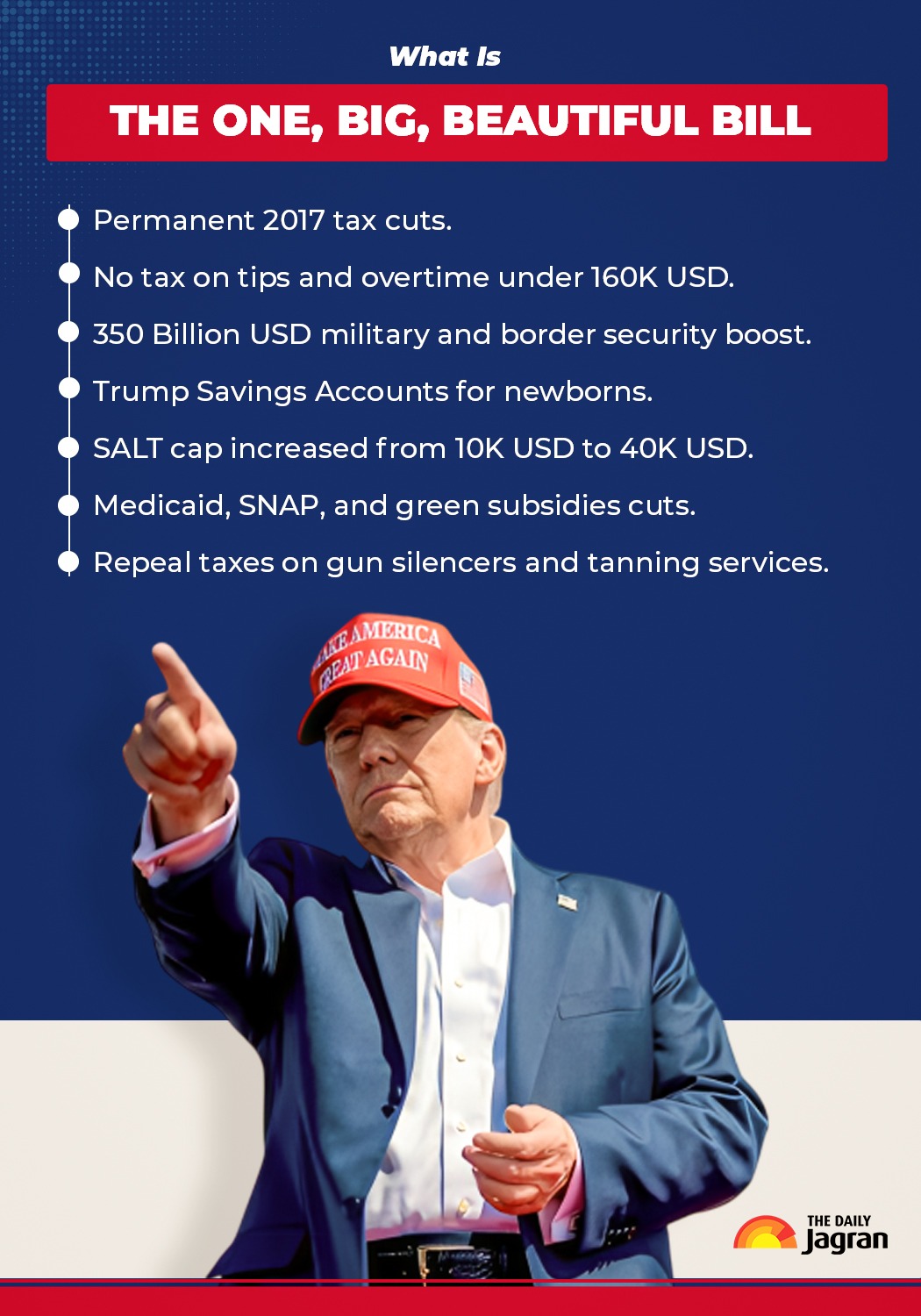- By Supratik Das
- Fri, 06 Jun 2025 10:21 AM (IST)
- Source:JND
Tesla and SpaceX CEO Elon Musk has launched a scathing assault on US President Donald Trump's flagship spending legislation, calling on Americans to require Congress to reject it. In a series of tweets on social media site X, Musk has called Trump's bill the "Debt Slavery Bill" and warned that it would balloon the US deficit by 5 trillion USD and drive America to "financial suicide". "Call your Senator. Call your Congressman. Bankrupting America is NOT acceptable! KILL the BILL," Musk tweeted, days after he resigned from his short stint as a special government employee leading the Department of Government Efficiency (DOGE). Musk worked 130 days in the Trump administration, tasked with cutting down wasteful government programmes. Musk, who had earlier pledged over 250 million USD to support Trump’s election campaign and Republican candidates, has now vowed to campaign against those who support the bill.
The One Big Beautiful Bill Act (OBBBA), a spending bill, has already passed the House of Representatives and is now headed for the Senate for consideration. The bill proposes a 4 trillion USD increase in the debt ceiling and aims to cement 2017 tax cuts, introduce new exemptions on tips and overtime pay, and ramp up military and border security spending. It also seeks to cut spending on Medicaid, food stamps, and green energy tax credits to pay for it, a move that has attracted criticism from both Democratic leaders and Republican budget hawks. Musk warned that the bill could increase the US deficit by as much as 5 trillion USD over the next decade. “This spending bill contains the largest increase in the debt ceiling in US history! "he tweeted, referring to it as a "disgusting abomination." White House press secretary Karoline Leavitt dismissed Musk's criticism. "The president already knows where Elon Musk was on this bill. This is one big, beautiful bill, and he's sticking to it," she said. The bill contains contentious provisions like eliminating federal excise taxes on gun silencers and tanning services, reducing subsidies on electric vehicles, and lowering green energy incentives. It also creates “Trump Savings Accounts” for newborns and raises the SALT cap for state and local tax deductions.

What Is In the One Big Beautiful Bill (OBBB)?
A thousand-page mega-bill, the OBBB is Trump’s legislative centerpiece in his second term. It includes:
• Permanent 2017 tax cuts.
• No tax on tips and overtime under 160K USD.
• 350 billion USD military and border security boost.
• Trump Savings Accounts for newborns.
• SALT cap increased from 10K USD to 40K USD.
• Medicaid, SNAP, and green subsidies cuts.
• Repeal federal excise taxes on gun silencers and tanning services.
Could This Bill Crash the US Economy?
This Bill has ominous ripple effects on the US Economy:
• Moody's has already lowered the US credit rating
• Yields on bonds are skyrocketing, increasing the cost of borrowing
• Foreign investors are pulling away from US treasuries
• Medicare and SNAP programs are facing deep slashes
Musk declares the bill "undermines" DOGE's goal to eradicate excessive expenditure and jeopardizes stability for future generations. While the Trump administration asserts the bill would benefit working-class Americans, the Congressional Budget Office (CBO) estimates it would disproportionately benefit wealthy individuals while cutting back aid to low-income families. The CBO estimates a 2 per cent decrease in resources for the lowest 10 per cent of earners by 2027, versus a 4 per cent gain for the top decile. Even Republicans have raised concerns. Senator Rand Paul echoed Musk's warnings, saying, "We have both witnessed the enormous waste in government spending. Adding another 5 trillion USD in debt is a huge mistake." Meanwhile, Senate Majority Leader John Thune is pushing for swift passage despite opposition. Trump has set a July 4 deadline to sign the bill into law, a move economists warn could lead to the first-ever US debt default if not resolved by August. According to the Congressional Budget Office (CBO), the bill could worsen the fiscal deficit to unsustainable levels, reaching 2.5 trillion USD annually, with debt-to-GDP ratios climbing toward 200 per cent in the next decade.

-1749184966334_v.webp)